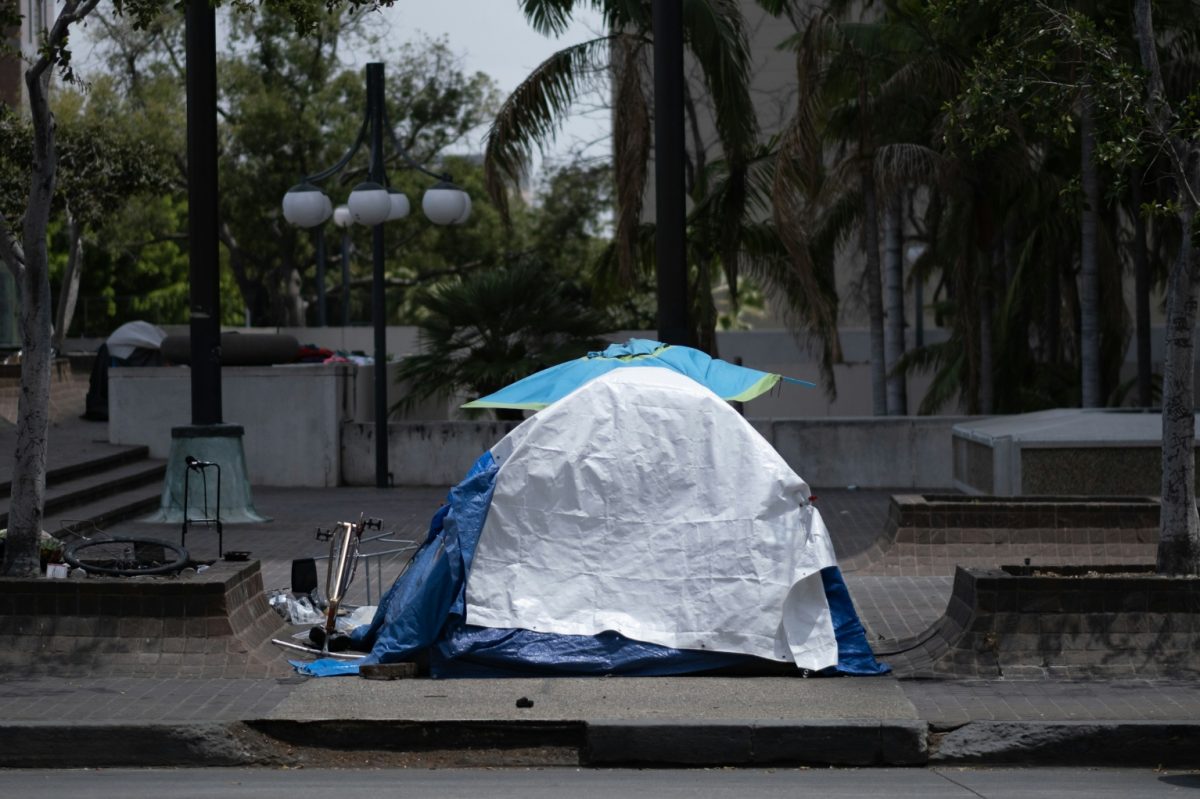The way we talk about being unsheltered makes it sound like a crime.
And with recent laws, it practically is. San Diego, California, and the Supreme Court have all validated and spurred the removal of encampments, citing public safety and sanitation concerns. However, there’s a glaring problem here: this effectively makes it illegal for those living in encampments to exist. It doesn’t help them find shelter or resources; instead, it denies them human necessities.
A collection of socially ingrained factors keeps the unsheltered from finding stable housing. Since the 1980s, its cost has shot upwards. For low-income Americans, wages have become stagnant over the past three decades, leaving millions working through housing insecurity.
Stable housing and employment are hard to maintain for Americans experiencing disabilities, mental health struggles, and substance abuse. Domestic violence also pushes people out of their homes.
Due to a history of race-based injustice, African American and Hispanic individuals are more likely to experience poverty, incarceration, and lack of healthcare. The effects of systemic housing discrimination continue to keep households of color struggling today.
It doesn’t help when law enforcement is tasked with removing people from the streets — often resulting in violent confrontations and leaving people with nowhere to go. The stigmatizing narrative around the issue, which blames individuals for their experiences and treats them as lesser, doesn’t help either.
San Diego has the country’s 4th-largest unhoused population. The 2024 WeAllCount program found 6,110 San Diego County residents living without shelter, an 18% increase from 2023. Over half live in the city of San Diego. Furthermore, 4,495 people in the county live in emergency or transitional housing. As San Diego residents, how may we serve our community members?
We can start by better understanding the root causes of the crisis, as mentioned above, and reframing our rhetoric — choosing to put people first and respect their identities, including using terms like “people experiencing housing insecurity” or “houseless.” After all, a home is not limited to shelter but encompasses a larger identity, which the term “homeless” can dismiss. In a broader sense, language should be genuinely humanizing, and should not treat affected people as the problem.
The National Alliance to End Homelessness advocates that we should “fight emerging laws that position [people experiencing housing insecurity] as de facto criminals” and ensure safety for unhoused people, rather than jumping to the use of law enforcement.
Mr. Hurt, a CCHS Mission and Ministry teacher, recommends Father Joe’s Villages and Habitat for Humanity as organizations helping locally. Volunteering with parishes and stores and taking part in service trips are other ways to assist the underserved.
Mr. Hurt explains that it’s important to put ourselves in the shoes of unhoused community members, humanizing their experiences. “The best thing a student can do right now is… go to school [and] learn as much as you can,” he tells students. “That sets you up to find your passions, and then, through [these], you can help others.” One day, we can use our education to make changes and policies for the good of our community.
Liza Delach ‘25 is the leader of the Human Rights Club at CCHS. The club educates CCHS students about the needs of, among others, unhoused individuals. This year, they plan to make blankets, work in the new Zak Myers Food Pantry, and collaborate with local organizations.
Liza shares that, besides shelter, people need clothing and food assistance, and encourages students to stay aware regarding issues like houselessness, both locally and globally. Donating to organizations is also valuable, if possible.
“Serving our community is one of the pillars of our education,” Liza expresses. “It’s really important that, as Dons, we live this out, and really put our best foot forward in terms of serving others in need.”























































Pearl • Oct 28, 2024 at 11:59 AM
I learned about the terrible treatment of the homeless in America any why it is do hard for them to survive in the U.S. The idea that being homeless is not a crime and should not be treated as such was a thought provoking idea that you explored well.
Pearl • Oct 28, 2024 at 11:56 AM
I love the way you use emotional appeal in addition to accurate and relevant statistics and quotes.